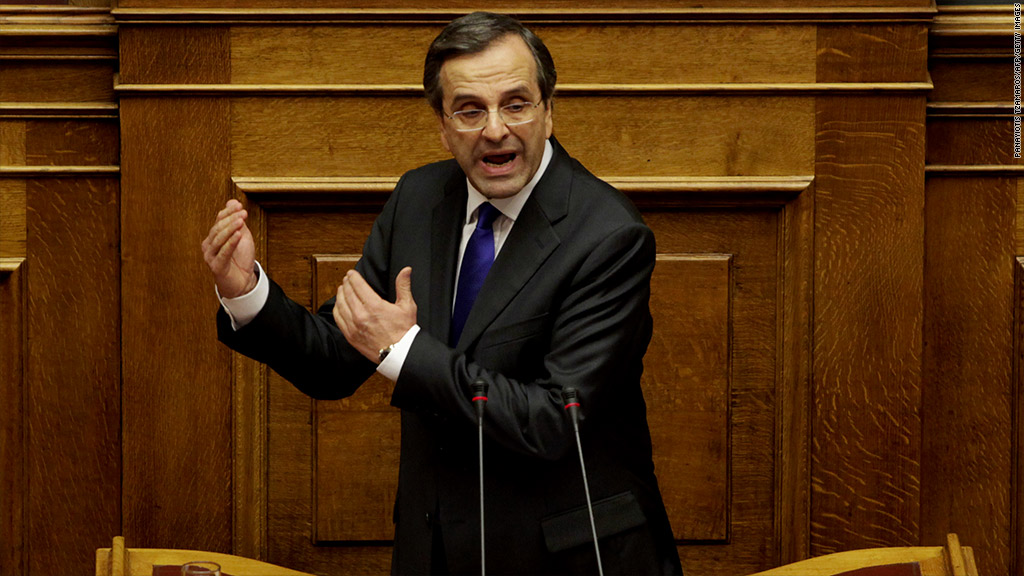
Greece's parliament approved the nation's 2013 budget Sunday, a big step toward unfreezing international bailout funds, even though disagreement among its creditors could push back the timetable for when that aid will resume.
The Athens parliament had already approved a new package of austerity measures worth €13.5 billion, a precondition for the so-called troika of EU, European Central Bank and International Monetary Fund officials to release the next installment of funds under Greece's second bailout.
"It really represents progress," ECB president Mario Draghi said last Thursday, adding that the ECB and eurozone finance ministers would discuss the Greek situation at a meeting in Brussels Monday.
With Sunday's vote in favor of Prime Minister Antonis Samaras' coalition government, Greece is likely to get two more years to meet budget targets set out in the original program in March, and gain access to €31.5 billion that Greece needs to stabilize its banks and redeem short-term debt due next Friday.
Related: Greece's misery won't end with bailout vote
But reports from Brussels and elsewhere suggest the troika of international lenders is unable to agree on the size of the funding gap created by pushing back the timetable for Greece to bring its debt to sustainable levels, and how it should be plugged.
Analysts estimate the funding requirement at about €30 billion, although it could be higher.
With the troika unwilling to consider putting more money on the table, or taking losses on existing loans to Greece, attention had turned to other measures, including cutting rates on previous lending and tweaking a debt-to-GDP target of 120% by 2020.
Draghi said Thursday that the ECB could return profits on its holdings of Greek debt -- estimated at up to €15 billion -- but signaled the bank was not ready to take other measures, putting the ball firmly in the court of eurozone states.
"The ECB is by and large done," he said, when asked about Greece.
Related: Greek unemployment a new record high
German Chancellor Angela Merkel and other European leaders have pledged to do what it takes to keep Greece in the eurozone but want to avoid, if at all possible, having to ask their own hard-pressed taxpayers to stump up fresh funding.
If the troika fails to reach agreement early next week, Greece may have to roll over €5 billion of Treasury bills due November 16.
It faced a similar situation in August, when the ECB agreed to raise the ceiling on the amount of Treasury bills the National Bank of Greece (NBG) could accept as collateral.
That allowed Greece to issue more bills to its banks, which in turn were able to draw on the ECB's emergency liquidity assistance facility.
Journalist Elinda Labropoulou and CNN's Laura Smith-Spark contributed to this report.


